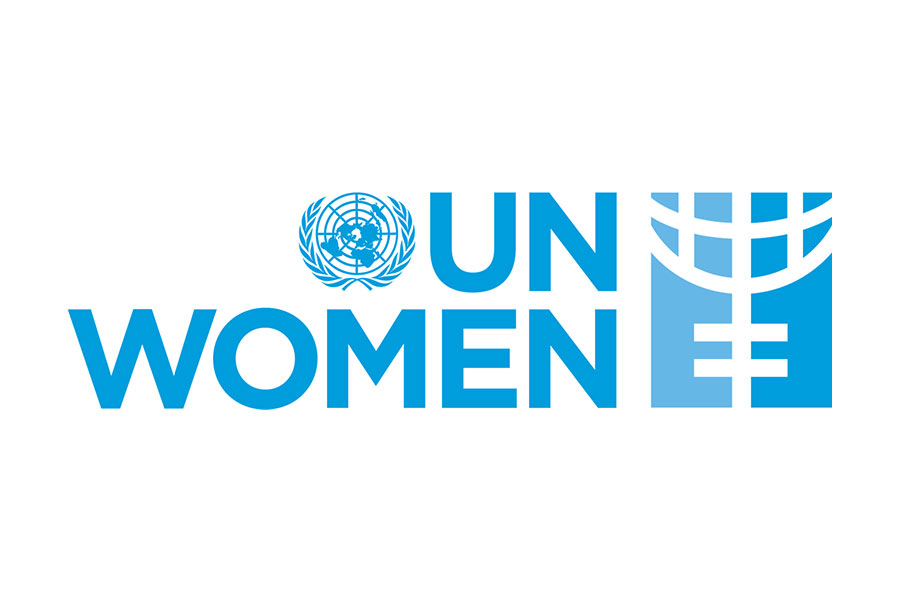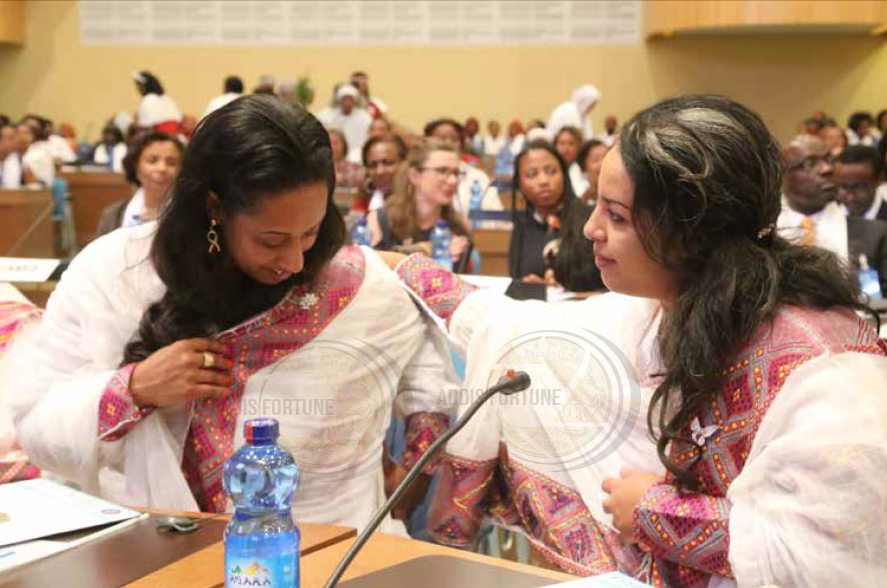
Fortune News | Nov 18,2023
Jul 31 , 2021.
They say making peace is harder than waging war. It is a real test of the courage of those making decisions on issues of life and death. Extending peaceful gestures in the midst of wars, in good faith, before victory is declared or defeated is accepted, requires grit. The determination may come from the resolution to save more lives and spare humanity from further suffering. Wars should be seen not as much through the lenses of what causes them but the affliction they bring to people, whether civilians or combatants.
However either side might have proclaimed their respective gains, for a neutral observer, the war ravaging in Tigray Regional State has inaugurated nothing but suffering on citizens ever since it started late last year. Putting the war to an end is the only option with a positive outcome. Thus, hope was glimpsed amid the war when federal forces pulled out and declared a "humanitarian ceasefire." For a moment, it had seemed like a light at the end of the tunnel. Perhaps, it was the dawning recognition that the war was unwinnable.
But hoping against hope appears to be the norm in a world where perpetual conflicts are viewed through binary: One side is an agent of good and the other a genius of evil.
The reality on the ground is far more complicated. It is getting a grip of realism that evades the warring parties and their diehard supporters. If the current circumstances do not change, the war risks turning into a quagmire that will go on for years, if not decades. The pains inflicted until this point are astronomical, and the horrific attacks against civilians, hard to imagine.
Sadly, supporters of either side have continued to nudge to stay fighting, desperate not to receive any news but gratifying victory. The rhetoric is one of war, romanticised, but blind to the cost it has inflicted on individuals, communities and society. They seem to accept nothing less than the war's conclusion through brute force - as if more crisis is the solution to the ongoing crisis.
Hence, it was disheartening to see the forces armed in the Tigray region refuse to reciprocate the unilateral call for a ceasefire, having put a range of preconditions. Their leaders seem to put truce in the place of settlement, the first a prerequisite to the latter.
Federal and regional governments are likewise actively recruiting into military and militia forces. Fighting has continued unabated. The humanitarian crisis remains no less alarming. Food is running out in the Tigray region, as the United Nations recently pointed out, as it has been pointing out for some time. Nearly every citizen in Tigray faces an adverse humanitarian crisis. Communication networks are down, electricity is cut off, banks are closed, and only a few essential food items are crossing over through aid organisations. The situation is as grim as they come.
It is appropriate to ask if anything could be salvaged at this point and if there is any benefit to the warring sides to concede at this moment, considering what has been lost thus far. There sure is, and that is the future of the people that both sides claim to be fighting to protect from "existential threats."
The political elites, those in power and outside, have no one but themselves to blame for what has happened. They have led their people into darkness. The least they could do is get them out of it by swallowing their pride and resentments and negotiate. This starts with the realisation that the point of war has always been peace. And the road to a durable peace begins with having a truce, a form of respite from active hostilities.
Cessation of hostilities does not entail settlements of all issues that led to the war. It does not mean the demands of either side are accepted or rejected. It just means that there is no longer fighting. It is about stopping the bleeding before a proper diagnosis is conducted for an enduring cure. But it is necessary to step into the next stage, where both sides bring their claims to the table, first through mediators, then hopefully directly through their negotiators, for settlement.
At the root of the ongoing war is political differences, which are entirely addressable through compromises.
All sides claim to have existentiality as a cause of continued mobilisation for war. This is not simply true. There are no political disagreements that could not be addressed if they could find it in themselves to negotiate. But none of this could go somewhere unless a binding bilateral ceasefire could be secured as immediately as possible.
In negotiating for a truce, the warring sides may dent their pride, for the war has been fuelled by arrogance and hubris. They may even lose political capital from their hawkish supporters. It is a war of culture, history and power. But history will look upon the decision to break the cycle of all-or-nothing conflicts favourably. With time, it will become clear that there is no heroism in continuing a war. It is like giving into a quicksand - it takes a brave set of elites to claw their way out and stop the madness.
The longer the war lasts, the darker Ethiopia`s development prospects as businesses shy away due to political uncertainty and the government is forced to siphon resources away from productive sectors of the economy. This is not to mention leaving a security vacuum in the rest of the country and, as authorities have admitted, leaving the state weakened.
The consequences to Tigray have been far more devastating. Development efforts of the past three decades have, to a considerable extent, been wiped out. Infrastructure, from roads to electric lines and airports, have been destroyed. Children are not going to school, and health centres are mainly non-existent outside the region’s capital, Meqelle.
Even if the war stops today and reconstruction efforts begin, it will be years before the impressive gains in economic and social sectors return to their pre-war levels. Diseases of poverty - linked to lack of access to clean drinking water, adequate sanitation, proper nutrition and access to health services – would be even harder to eradicate in the region. The longer the war lasts, the more debilitating and generational that indicators of ‘human development,’ anchored on levels of life expectancy, education and household incomes, are likely to be for millions of citizens.
The war must stop.
In declaring a "humanitarian ceasefire", the federal government has put the ball in the court of the forces armed in Tigray. They should respond to this call in kind, urging for a truce that may lead to talks for settlements. The international community could expend its energy here instead of threatening Ethiopia with economic sanctions. The latter has a poor history of improving the behaviours of leaders determined to pursue the course of wars but harms citizens. Economic sanctions often lead to more unemployed youth that goes on to become cannon fodder.
The international community needs to continue to call out for humanitarian services to reach citizens unfettered, urge for the lifting of the blockade imposed, for foreign forces to leave the region and call for the immediate cessation of hostilities. The federal government has acceded to the latter for the first time since the war broke out in November 2020. The international community now needs to continue to insist that forces armed in the Tigray region reciprocate the call for a truce.
PUBLISHED ON
Jul 31,2021 [ VOL
22 , NO
1109]

Fortune News | Nov 18,2023

Viewpoints | Jun 05,2021

My Opinion | Dec 31,2022

Editorial | Aug 14,2021

My Opinion | Feb 22,2020

Sponsored Contents | Oct 25,2021

Radar | Feb 22,2020

Fortune News | Nov 15,2018

View From Arada | Nov 02,2019

Viewpoints | Jun 07,2025

My Opinion | 132041 Views | Aug 14,2021

My Opinion | 128437 Views | Aug 21,2021

My Opinion | 126364 Views | Sep 10,2021

My Opinion | 123987 Views | Aug 07,2021

Dec 22 , 2024 . By TIZITA SHEWAFERAW
Charged with transforming colossal state-owned enterprises into modern and competitiv...

Aug 18 , 2024 . By AKSAH ITALO
Although predictable Yonas Zerihun's job in the ride-hailing service is not immune to...

Jul 28 , 2024 . By TIZITA SHEWAFERAW
Unhabitual, perhaps too many, Samuel Gebreyohannes, 38, used to occasionally enjoy a couple of beers at breakfast. However, he recently swit...

Jul 13 , 2024 . By AKSAH ITALO
Investors who rely on tractors, trucks, and field vehicles for commuting, transporting commodities, and f...

Jul 13 , 2025 . By YITBAREK GETACHEW
The Addis Abeba City Revenue Bureau has introduced a new directive set to reshape how...

Jul 13 , 2025 . By BEZAWIT HULUAGER
Addis Abeba has approved a record 350 billion Br budget for the 2025/26 fiscal year,...

Jul 13 , 2025 . By RUTH BERHANU
The Addis Abeba Revenue Bureau has scrapped a value-added tax (VAT) on unprocessed ve...

Jul 13 , 2025 . By NAHOM AYELE
Federal lawmakers have finally brought closure to a protracted and contentious tax de...